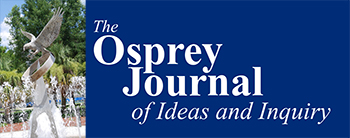
All Volumes (2001-2008)
Volume
Volume VI, 2007
Faculty Sponsor
F. Dan Richard
Document Type
Article
Publication Date
2007
Abstract
Researchers in the past have found that personal experience and formal training lead to better accuracy when predicting research outcomes in areas of psychology. Personal experience and formal training were compared in this study on the ability of students to predict research outcomes in social psychology. Students completed questionnaires that measured their social engagement (a proxy to personal experience), their academic history and status, and their knowledge of social psychological findings. Students with more psychology classes taken in college were better able to predict research outcomes (r = .24). Psychology majors knew more findings in social psychology than nonpsychology majors (d = .28). Students with higher academic status were better able to correctly identify research findings (η=.31). Measures of personal experience (i.e., social engagement) did not predict accuracy in identifying correct research findings. Formal training was a better predictor of accuracy than personal experience. Students had the opportunity to change their misconceptions about the social world when they were taught research findings in the classroom. People might also learn about human social behavior vicariously or from small amounts of social interaction rather than from high amounts of social engagement.
Suggested Citation
Quarterman, Carrie, "Formal Training, Personal Experience, and the Ability to Predict Research Findings in Social Psychology" (2007). All Volumes (2001-2008). 39.
https://digitalcommons.unf.edu/ojii_volumes/39

